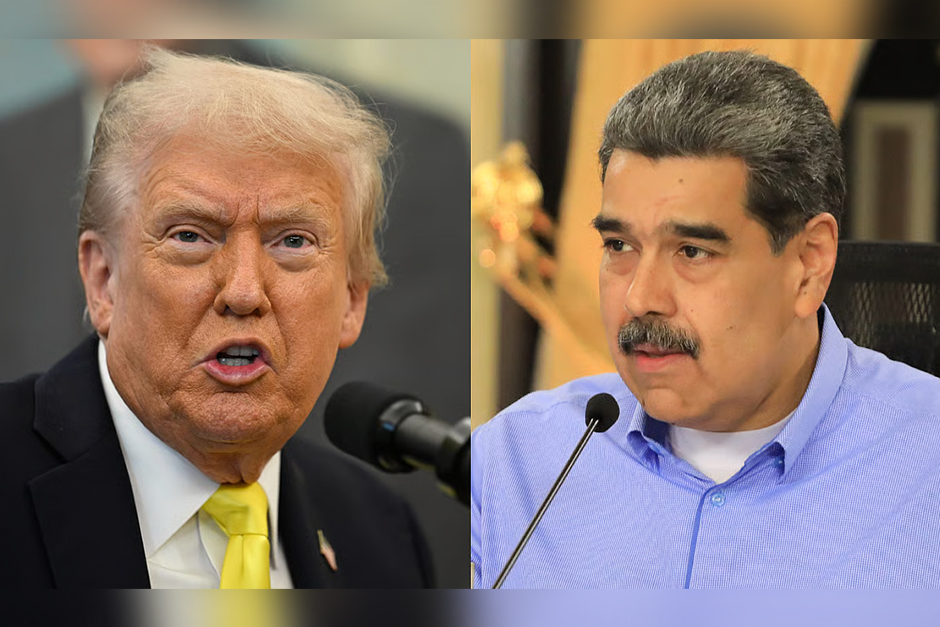The South American nation of Venezuela, rich in oil but mired in an unprecedented economic and political crisis, finds itself teetering on an even sharper precipice. Recent reports indicating that former U.S. President Donald Trump, during his tenure, authorized covert CIA operations aimed at fostering a coup in Venezuela have sent ripples across geopolitical landscapes, intensifying scrutiny on the already volatile region. This revelation underscores the depth of Washington’s ‘maximum pressure’ campaign against Nicolás Maduro’s government and raises critical questions about international sovereignty, regional stability, and the complex interplay of global powers.
Venezuela’s Deepening Internal Quagmire
For years, Venezuela has been a country in freefall. Its once-booming oil economy has collapsed, leading to hyperinflation, severe shortages of food and medicine, and a humanitarian crisis that has forced millions to flee. The political divide is stark, with President Nicolás Maduro, backed by the military and key international allies like Russia and China, facing off against the U.S.-supported opposition leader Juan Guaidó, whom many Western nations recognized as the interim president.
The internal struggles are multifaceted. Economic mismanagement, rampant corruption, and a significant drop in global oil prices have crippled the nation. Sanctions imposed by the U.S. and its allies have further exacerbated the humanitarian situation, although Washington argues these measures are designed to pressure the Maduro regime into democratic reforms. As the Venezuelan people grapple with daily hardships, the external interventions add another layer of complexity, often seen as complicating any organic resolution to the crisis.
Trump’s Covert Strategy and Global Repercussions
The authorization of CIA operations, reportedly greenlit by Trump in 2018, signaled a dramatic escalation in U.S. efforts to unseat Maduro. While the specifics of these covert activities remain largely undisclosed, such authorizations typically involve intelligence gathering, psychological operations, and potentially support for opposition groups or dissidents within the military. This approach stands in contrast to overt diplomatic and economic pressures, carrying higher risks of unintended consequences and international condemnation.
The geopolitical implications are profound. Venezuela has become a proxy battleground for global powers, with the U.S. and its allies on one side, and Russia, China, and Cuba firmly supporting Maduro. Covert operations, if proven effective, could destabilize the region further, potentially leading to increased militarization and a humanitarian catastrophe of greater magnitude. Conversely, if unsuccessful, they could entrench Maduro’s power and deepen anti-U.S. sentiment.
Observers worldwide, including in India, watch these developments with keen interest. As a major energy importer, India has a vested interest in the stability of global oil markets, which could be impacted by an escalating crisis in a top oil-producing nation like Venezuela. While India has historically maintained a policy of non-interference in the internal affairs of other nations, advocating for peaceful and democratic resolutions, the increasing overtness of external interventions in Venezuela presents a challenging precedent for international law and sovereignty.
A senior analyst on international relations, speaking on condition of anonymity, noted, “The line between regime change and fostering democracy becomes incredibly blurred when covert operations are authorized. It risks creating a dangerous precedent, where external powers feel justified in interfering in sovereign nations under the guise of restoring order, potentially undermining the very fabric of international law.” This sentiment resonates deeply in countries like India, which champion multilateralism and adherence to international norms.
A Precarious Path Forward
The revelations surrounding the authorized CIA operations underscore the precariousness of Venezuela’s future. The interplay of internal dissent, economic collapse, and external pressures, both overt and covert, creates a highly unstable environment. While the current U.S. administration under President Biden has indicated a shift towards more multilateral diplomacy, the legacy of past covert actions continues to cast a long shadow.
For Venezuela, the path ahead remains fraught with uncertainty. Any meaningful resolution would likely require a significant de-escalation of external interference, coupled with genuine dialogue and concessions from all internal political factions. Until then, the nation will continue to balance precariously on a knife edge, with its fate heavily influenced by both its internal dynamics and the unseen hands of global geopolitics.
The world watches, hopeful for a peaceful and democratic outcome, but acutely aware of the potential for further turmoil in a country already brought to its knees.




